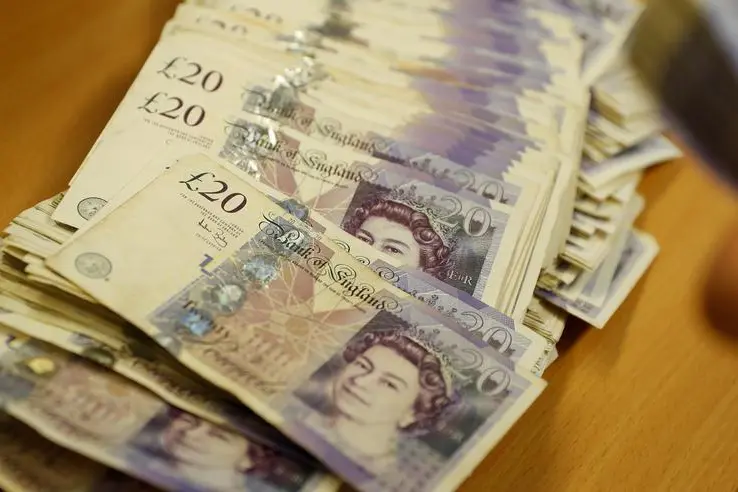PHOTO
LONDON - Sterling recovered early on Monday from a slight dip against the dollar on expectations that British Prime Minister Boris Johnson will "shortly" be back at work after being hospitalised on Sunday night with persistent coronavirus symptoms.
The bounce back came after housing minister Robert Jenrick said Johnson was "doing well" and was expected to be back at 10 Downing Street shortly.
The British currency had hovered near one-week lows overnight after the British leader's hospitalisation.
"Markets were initially quick to jump to the worst possible conclusion and assume that the PM's illness would create a degree of dysfunctioning within the UK government, which was not the case given that there were measures in place to deal with such a scenario," said Viraj Patel, global FX and macro strategist at Arkera, noting the nomination of foreign minister Dominic Raab as Johnson's designated survivor.
"What we're seeing now is the pound retracing this unusual move lower as details emerge that we're far from the worst-case scenario of the UK government being plunged into disarray."
By 0923 GMT sterling was trading 0.3% higher at $1.2294. Against the euro, it gained 0.4% to trade at 87.82 pence.
The pound remains down against both the common currency and the dollar since the start of the year, by around 4% and 7% respectively.
Sterling has recovered some ground against the dollar in the past three weeks as demand for the U.S. currency has eased globally after central banks adopted massive stimulus measures to combat the economic impact of the coronavirus pandemic.
But analysts have said the fundamental outlook for the currency remains weak as a ramp-up in government spending threatens to worsen the UK's current account deficit. That, along with weak economic data due to the pandemic and the backdrop of ongoing Brexit trade talks, are among reasons analysts say the currency appears vulnerable.
Speculators trimmed their net long positions on the pound in the week to Tuesday, March 31, CFTC data showed on Friday.
Britain's construction sector last month showed its sharpest fall in activity since the financial crisis more than a decade ago, despite facing much less pressure than other industries to shut down operations due to the coronavirus pandemic.
A group representing Britain's car industry cut its sales forecast for this year by 23% to 1.73 million vehicles because of the impact of the coronavirus crisis.
(Reporting by Thyagaraju Adinarayan and Ritvik Carvalho; Editing by Gareth Jones) ((thyagaraju.adinarayan@thomsonreuters.com; Twitter @thyagu))





















